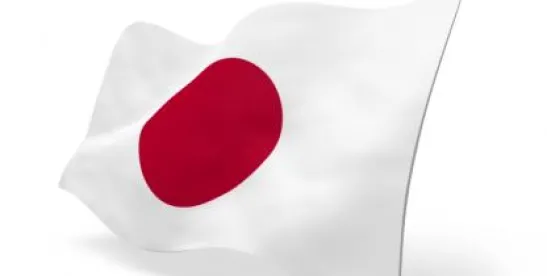On August 9, 2019, Japan notified the World Trade Organization (WTO) of its draft Positive List (PL) System for food-contact plastics (see WTO Notification G/TBT/N/JPN/630). Japan will accept nominations for new and expanded clearances of polymers, monomers and additives used in "synthetic resins."
As detailed in our previous article, Japan's Regulation of Food Contact Materials - A Step Closer to the New Positive List System, Japanese regulation of food packaging materials combines government regulations - pursuant to the Food Sanitation Law - and voluntary standards established by industry trade associations, which establish a baseline for the safety of food-contact materials (FCM). This scheme will persist after the new PL System for food-contact plastics takes effect in June 2020, and separate positive lists for other materials are expected in the years to come. In addition, the Ministry of Health, Labour and Welfare (MHLW) has published formal guidelines on Good Manufacturing Practice.
A New Positive List. In June 2015, MHLW held a meeting to discuss the introduction of a formal PL System for FCM. The Ministry released a formal report in June 2017 detailing its overall strategy, and notified the WTO of its intent to establish a formal positive list for "Utensils, Containers and Packaging" (UCP) in January 2018 (See WTO Notification G/SPS/N/JPN/552, titled "Food and food additives, utensils, containers and packaging for food and food additives"). MHLW resolved to start this process by addressing "synthetic resins" (e.g., plastics), and developed initial drafts based on the voluntary Standards developed by relevant trade associations (i.e., JHOSPA, JHPA, and JHAVDC), and worked with industry to refine and expand these lists. After nominations by industry, the draft Positive List for synthetic resins has now been notified to the WTO.
WTO Notification Content. The draft Positive List was notified to the WTO on August 9, and comments will be accepted until October 8, 2019. The notification contains the following lists of proposed clearances for food-contact substances:
-
Base Polymers (plastics)
-
Base Polymers (coatings, etc.)
-
Minor Monomers that may be used in base polymers
The lists of permitted base polymers (plastics), base polymers (coatings, etc.), minor monomers, and additives are available on the MHLW website. Each individual polymer listing details the food types that may be contacted (e.g., acidic, alcoholic, fatty, etc.), the permitted temperature conditions of use, and any applicable limitations. The list of "base polymers (plastics)" details a total of 67 different base polymer categories, each classified among the 7 resin groups previously defined in the evaluation guidelines for food-contact plastics published by Food Safety Commission of Japan (FSCJ). For example, resin groups 5, 6 and 7 pertain to polyethylene (PE), polypropylene (PP) and polyethylene terephthalate (PET) resins, respectively.
The "Minor Monomers List" is a unique aspect of the proposed PL System, which designates the permitted monomers that can be used at up to 2%, alone or in combination.
-
Additives, coating agents, etc.
The additive approvals specify the maximum use level for the substance in each of the aforementioned 7 resin groups, with additional limitations noted in the "remarks" column, where applicable.
Path Forward. Nominations for plastic FCM (new substances or expanded clearances) will be accepted until October 8, 2019. Once reviewed, the final Positive List will be promulgated around December 2019 and take effect in June 2020. Substances subject to the PL System, but not included in the draft lists, will need to be the subject of formal petitions submitted to the Japanese government. The evaluation guidelines published by FSCJ make clear that these will be complex filings, and the time needed to obtain new clearances may be considerable.
Other FCM (e.g., paper, adhesives, etc.) remain subject to MHLW's traditional regulatory scheme and the voluntary standards now in place. It is unclear when MHLW will take aim at its next Positive List expansion.






 />i
/>i

